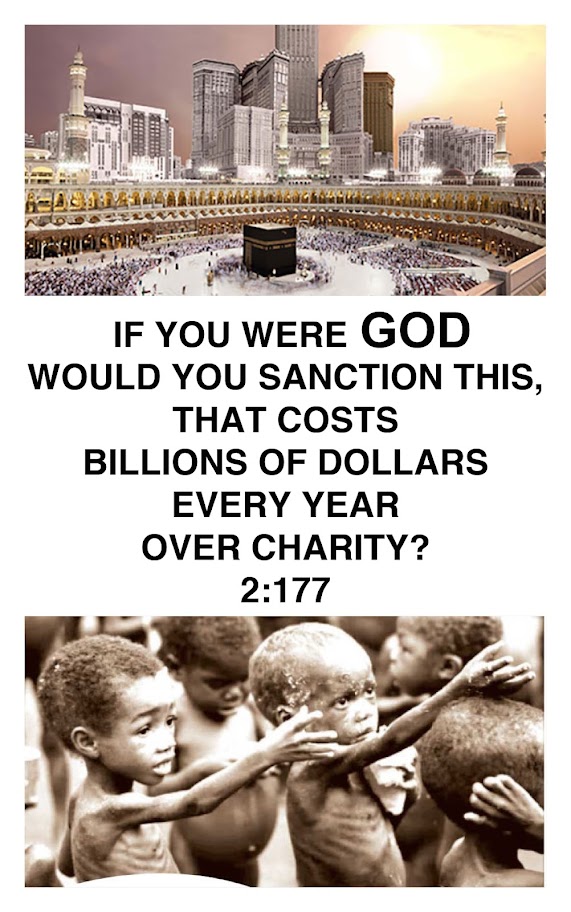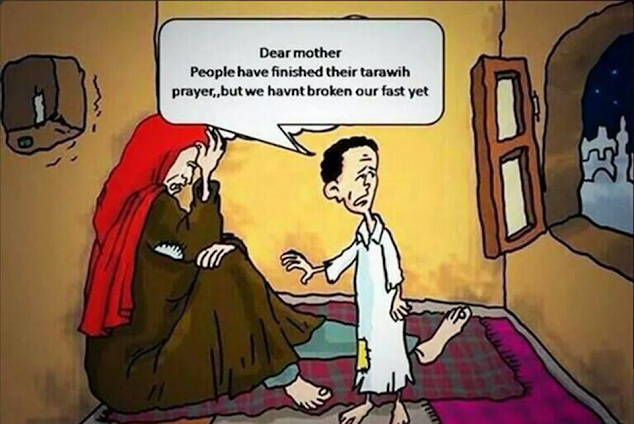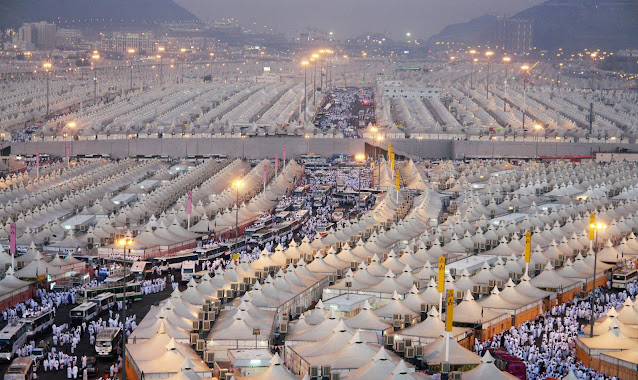Day of Wukuf
What Does a Religious Calendar Mean?
Muslims generally believe that based on the Hijra calendar, certain days or months are given special treatment or extra rewards for certain deeds, good works or rituals, compared to other days or months. Please be reminded that the Hijra calendar was simply a continuation of Jahili or pagan Arabs calendar that had been in use well in pre-Islamic Arabia.
Does it imply that the Lord of the Universe subscribes to manmade calendar? Does it mean Allah is following manmade calendar to provide His blessings in the month of Ramadhan and give extra rewards for all the good deeds done during the month, apart from fasting during this month over any other months? Similarly on Nisfu Syaaban, why would Allah prefer a particular manmade calendar month to raise our deeds to Him?
Shaaban is the month when deeds are raised to Allah. Our Prophet Muhammad s.a.w said:“It is a month where people tend to neglect, between the months of Rajab and Ramadan. It is a month in which the deeds are raised to the Lord of the worlds, and I like my deeds to be raised while I am fasting.”
(Sunan An-Nasa’i)
The Prophet s.a.w. increased his acts of worship by fasting more compared to other months (other than Ramadan).
Just ponder when humans settled on Mars in the near future, will there be holy hours or days (sols), sacred or blessed months? Will it matter to the Lord of Universe?
Is the Calendar of Saudi Arabia, the Calendar of God?
It seems that subconsciously, Muslims had the thinking that Allah had to follow the present calendar of Saudi Arabia. Every time the Saudi Government made adjustments to the calendar to determine the day of Hajj and the Day of Wukuf, Allah shall oblige and fulfill to answer the prayers of Muslims whom are present in a particular area and time over other places on earth. Muslims never had a slightest doubt whether the Lord of the Universe was agreeable to the Calendar of Saudi Arabia. This is where the consciousness of Muslims comes into question.
Wukuf Day
The ninth day of the Islamic lunar month is observed as Wukuf Day, also referred to as The Day of Arafah (or Arafat). It occurs on the second day of Hajj and in the twelfth month of the Islamic calendar, Dhul-Hijjah. The best day of the year in the eyes of Muslims is on this day.
For Muslims traveling to Mecca, Saudi Arabia, this day marks the culmination of their journey. They assemble at the mountain plain of Arafah to pray and beg for mercy.
Muslims place a lot of importance on the Day of Arafah because pilgrimage is the Fifth pillar of Islam. Millions of Muslims' sins can be pardoned by Allah on the Day of Arafah if they seek it out. The Day of Arafah commemorates the moment when Islam was fully realized and sanctioned as a way of life for all Muslims.
For Muslims, the Day of Arafah is regarded as a very holy and morally upright day.
On this day, near the end of his life, the Prophet Muhammad delivered his final sermon to the numerous Muslims with whom he performed Hajj on Mount Arafah on the plain of Arafah, the Prophet Muhammad was positioned.
The Day of Arafah is a day of thanksgiving according to Islamic teachings, which is why Muslims celebrate Eid the following day. As well as offering the chance for great reward, today is a day of tremendous forgiveness.
Abu Qatada al-Ansari narrated that Muhammad was asked about fasting on the Day of Arafah, whereupon he said: It expiates the sins of the preceding year and the coming year. Also about fasting on the Ashura (10 Muharram) he said: It expiates the sins of the preceding year.
In Sahih Muslim it was narrated fromAisha that Muhammad said:
There is no day on which Allah frees more people from the Fire than the Day of Arafah. He comes close and expresses His fulfillment to the angels, saying, "What do these people want?"
The people would fast on this day to get their bad deeds in the upcoming year, and the past year, taken away.
Correct day for Wukuf?
Muslims have to assume the beginning of the month of Dzulhijjah shall be determined by the Saudi Government based on their decisions, and subsequently Allah will oblige to this government decision.
Strangely, all other Muslim countries will also have to change their Hijra calendar to match the Saudi Hijra calendar. This was after all other Muslims countries previously decided to determine the first day of the Arabic month of Ramadhan and Syawal on their own, regardless of Saudi Arabia's decision.
So for Ramadhan and Eidul Fitri, Allah will have to deal with different dates for each country and all is fine.
But when it comes to Dzulhijjah, Muslim countries don't really care if the moon's orbit might go off and need visual confirmation.
It does not matter even if the Saudi Government made a mistake in the moon sighting.
And it does not even matter if the month of Dzulhijjah did not fall in winter as it used to.
Allah will just oblige.
Wukuf in Arafah, Makkah
Again we need to remember that the large amount of money that were saved for this once in a life time trip (several times for the wealthy or those living nearby) which are believed to be for the path of Allah, but actually goes to airline companies, hotel operators, tour agents and other associated expenses for our own comfort. The pilgrims were spending it onto themselves, and maybe a smaller portion of charity.
How do we substantiate this to those who can’t afford such journey, or food on their table. Is this truly a priority requirement from Allah? That Allah really need this from us? That Allah need us to come to a particular place in a particular time to devote ourselves to Him? Aren’t we associating him enough with locality, time and stoning rituals?
To spend money for Allah is to spend it on charity. Not hotels or airlines for personal comfort. As explained in previous verse 2:177, as far as Allah is concerned, it is our actions that give tangible results that count. The reality on Hajj is both shocking and sad. Allah is very close to us (50:16) and Allah is free from any needs.
50:16 And We have already created man and know what his soul whispers to him,
and We are closer to him than [his] jugular vein.
2:267 O you who have believed, spend from the good things which you have earned and from that which We have produced for you from the earth.
And do not aim toward the defective therefrom, spending [from that] while you would not take it [yourself] except with closed eyes.
And know that Allah is Free of need and Praiseworthy.






Comments
Post a Comment